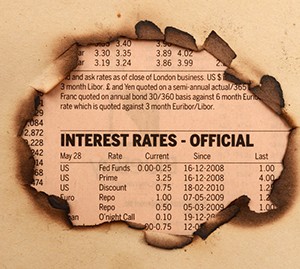International Payments
When you need to make an International Payment you want to be sure that it will reach the receiver efficiently and cost effectively.
For Business Customers you can make an International Payment in all major currencies to most destinations worldwide on a Standard or Urgent basis through iBB (Internet Business Banking). Click here to find out more.
To make an International Payment other than through iBB you must complete an Paylink or SEPA Credit Transfer paper application Form and post it to Allied Irish Bank (GB), 92 Ann Street, Belfast, BT1 3HH. You must hold an Allied Irish Bank (GB) account to complete a payment.
Please note:
- These forms are updated from time to time. To ensure you are using the correct version, please download the form from our website on each occasion you wish to make an International Payment.
- For certain countries purpose of payment codes are required when sending an International Payment. For more information on these codes please go to the following link: Purpose of payment codes
- Features and Benefits
What do you need to do?
Read and review the International Payments Terms & Conditions
Print the Paylink or SEPA Credit Transfer application form and complete the form in BLOCK capitals
Please read through the completed Paylink or SEPA Credit Transfer application form to ensure all details are correct and sign to confirm your instruction and acceptance of the International Payment Terms & Conditions.
Post the form to Allied Irish Bank (GB), 92 Ann Street, Belfast, BT1 3HH. Where we allow, we may accept International Payment by Fax or Scanned instruction.
What happens next?
When the Paylink or SEPA Credit Transfer application form is received by us, a member of staff will check the details on the form to ensure all sections are completed fully.
The receiver account number must be in IBAN format for SEPA Credit Transfer instructions. Please refer to the below FAQ’s for further information on IBAN.
A member of staff may contact you to confirm the details of the payment.
An exchange rate may be applied to the payment. If the payment is in excess of £20,000, we will request a special exchange rate from our Treasury team. You will be advised of this rate, by telephone or in person, during confirmation of the payment.
You must ensure you have sufficient funds in your account to cover the payment and the charge. If there are not sufficient funds in your account the payment will not be sent.
What is the difference between and SEPA and International Payment?
| Payment Type | Description | When to use | Fees and Charges |
SEPA Payment (Single Euro Payment Area) (SEPA form) |
This is a Euro payment made using the SEPA system Payments can take up to 2 working days to clear in the account |
Any euro payment going to the SEPA Zone* can go as a SEPA payment Note: if the Bank you are paying is not part of the SEPA scheme you will need to do an international payment |
See our fees & charges brochure |
International Payment (PayLink form) |
International Payment means transferring funds, in any currency, from or to an account to another account outside of the UK, or transferring funds from or to another account inside the UK in any currency other than Sterling. |
For payment which includes a foreign currency. | See our fees & charges brochure |
*for SEPA Zone countries see ‘Where can I send SEPA credit transfer payment to’
Help and Guidance
Help Centre
For all service related queries please visit our Help Centre.
Frequently asked questions
View our list of International payments FAQs.
Talk to Us
Simply call +44 (0)345 600 5204† and we’ll be happy to answer any questions you might have about applying for Asset Finance with Allied Irish Bank (GB).
† Lines open: 9am to 5pm Monday - Friday (except on bank holidays). Calls may be recorded. Call charges may vary - refer to your service provider.
You can write to us at:
Allied Irish Bank (GB)
92 Ann Street
Belfast
BT1 3HH






